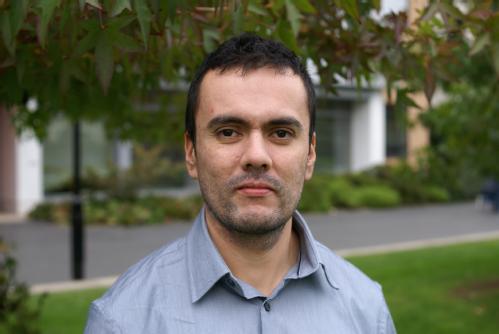Departmental news
New collaborative project on parity games
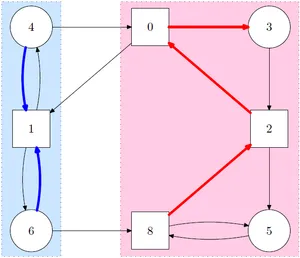
Dr Marcin Jurdzinski and Dr Ranko Lazic from Warwick's DIMAP inter-disciplinary centre and the Computer Science department, jointly with Dr Sven Schewe, Dr John Fearnley and Dr Dominik Wojtczak from the University of Liverpool, will lead a new research project on solving parity games in theory and practice, to run 2017-2020.
The project will be supported by approx. £750K from the EPSRC across the two sites. The proposal was ranked top at its funding prioritisation panel, and the reviewers said:
This is the strongest and best designed proposal on theoretical computer science I have seen in the last five years.
as well as
The proposal is about fundamental research, but there is a clear path connecting the expected results to concrete industrial needs on program verification and program synthesis.
Professor Artur Czumaj, head of DIMAP and of the Theory and Foundations research division, commented:
This exciting new EPSRC project builds on excellence in theoretical computer science for which Warwick is internationally renowned. It strengthens our collaborative links with Computer Science at Liverpool, who were likewise one of the leading departments for research outputs in the most recent REF.
Graham Cormode and Dan Kral awarded ERC Consolidator grants
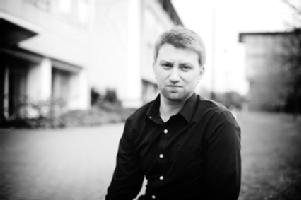
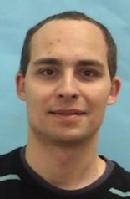
The European Research Council (ERC) has just announced that two Warwick Computer Science Professors, Graham Cormode and Dan Kráľ, have been among the winners of its Consolidator Grant competition. ERC Consolidator Grants is funding 372 top mid-career scientists with €713 million to pursue their best ideas, as part of the European Union Research and Innovation programme Horizon 2020. Grants are worth up to €2.75 million each, with an average of €1.91 million per grant. The funding will enable them to consolidate their research teams and to develop their most innovative ideas.
Graham Cormode has been awarded an ERC Consolidator grant for a project entitled "Small Summaries for Big Data". The project focuses on the area of the design and analysis of compact summaries: data structures which capture key features of the data, and which can be created effectively over distributed data sets. The project will substantially advance the state of the art in data summarization, to the point where accurate and effective summaries are available for a wide array of problems, and can be used seamlessly in applications that process big data.
Dan Kráľ has been awarded an ERC Consolidator grant for a project entitled "Large Discrete Structures". The project will advance theory of combinatorial limits, which combines methods from analysis, combinatorics, computer science, group theory and probability theory to analyze and approximate large discrete structures (such as graphs, which can be used to represent large computer networks). The project will lead to proposing new mathematical methods to represent such discrete structures and to applications of the new methods to specific problems in extremal combinatorics and algorithm design.
Dr Sylvain Schmitz joins DCS as Leverhulme Visiting Professor
The department and DIMAP are delighted to welcome Sylvain Schmitz from LSV, ENS Cachan, CNRS and INRIA Saclay, who has joined us this week as Leverhulme Visiting Professor.
Funded by the Leverhulme Trust, Dr Schmitz will spend 6 months at Warwick, collaborating with Dr Ranko Lazic and other colleagues on logics and games for algorithmic verification, and delivering three research lectures.
Continued research success
Dr Nathan Griffiths has been awarded a new EPSRC grant titled “JASPR: Justified Assessments of Service Provider Reputation”, which is to run jointly with KCL. JASPR aims to improve the way that services are discovered, selected and used by providing rich, personalised reputation assessments of services with the rationale behind those assessments. It is particularly targeted at giving small and medium-sized enterprises (SMEs) better exposure to large clients by reducing clients' reliance on extensive market histories or opaque online reviews that do not account for personalised needs.
Dr Ranko Lazic and Dr Marcin Jurdzinski have been awarded a research grant from the EPSRC for the next 2.5 years, entitled 'Counter Automata: Verification and Synthesis'. They will collaborate with Prof. James Worrell and Prof. Joel Ouaknine of the University of Oxford, to develop new automated procedures for analysing counter automata that will ultimately aid the design, modelling, verification, and analysis of complex computer systems. Commenting on the project, Dr Christoph Wintersteiger from Microsoft Research Ltd wrote that it 'has potential to significantly influence the next generation of Satisfiability Modulo Theories solvers [...] that in leading software industry today, are at the core of many advanced program analysis, testing and model-based development tools'.
EPSRC have recently funded a Warwick/York/Imperial £1M CCP Flagship project on "A radiation-hydrodynamics code for the UK laser-plasma community”. This project aims to provide large-scale software development for internationally leading computational science in laser plasma physics. This comes on the back of the new Centre for Computational Plasma Physics established by Prof Arber (Physics) and Prof Jarvis (Computer Science). This EPSRC project will fund a postdoc in the High Performance Computing Group for three years.
Professor Graham Cormode receives the Royal Society Wolfson Research Merit Award
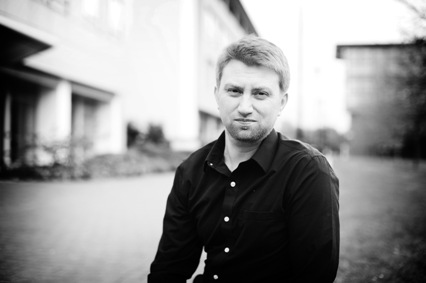
Professor Graham Cormode from the Department of Computer Science, has been awarded a Royal Society Wolfson Research Merit Award.
The Wolfson Research Merit Award is one of the most prestigious UK awards, supported by the Royal Society, the UK's national academy of science. The scheme provides up to 5 years’ funding after which the award holder continues with a permanent post at the host university. Jointly funded by the Wolfson Foundation and the Department for Business, Innovation and Skills (BIS), the scheme aims to provide universities with additional support to enable them to attract science talent from overseas and retain respected UK scientists of outstanding achievement and potential. Professor Graham Cormode's research will focus on "Small summaries for big data".
The Wolfson Foundation is a grant-making charity established in 1955. Funding is given to support excellence and the focus of the award is a salary enhancement.
The Royal Society is a self-governing Fellowship of many of the world’s most distinguished scientists drawn from all areas of science, engineering, and medicine. The Society’s fundamental purpose, reflected in its founding Charters of the 1660s, is to recognise, promote, and support excellence in science and to encourage the development and use of science for the benefit of humanity.
(See also The Royal Society announcement).
More information about Professor Graham Cormode's research is available at his web page at http://www2.warwick.ac.uk/dcs/people/graham_cormode.
Mike Joy, Meurig Beynon and Steve Russ will lead an Erasmus+ project, Construit!
Congratulations to Mike Joy, Meurig Beynon and Steve Russ, who will lead an Erasmus+ project, to start in October 2014, for 3 years! The project also involves EDUMOTIVA from Greece, UEF from Finland, Helix5 from the Netherlands, Comenius University from Slovakia, and University of Edinburgh UK.
And now for something green ...

Research highlights the future of energy-aware high-performance computing
Leipzig, June 18, 2014. As reported in Inside HPC.
With energy costs a growing concern for High Performance Computing, Allinea Software will demonstrate its vision of a greener future with a preview of new tool extensions for application energy usage optimization at this year's International Supercomputing Conference (ISC'14) in Leipzig.
With larger numbers of data centers consuming over 1MW of power or having electricity bills topping $1M, energy is focussing the minds of the system sponsors and managers, says David Lecomber, CEO of Allinea Software.
Allinea Software worked with application performance experts at the University of Warwick to investigate novel energy and power measuring techniques for scientific application workloads.
to investigate novel energy and power measuring techniques for scientific application workloads.
Energy usage data is increasingly available at the system level, and our research also explored proxies for energy such as hardware counters to see where they could give deeper insight, said Professor Stephen Jarvis of University of Warwick’s HPC Performance Analysis Group.
The research supported the view that in many cases applications can reduce energy costs without adversely impacting actual run time.
Improving the green credentials of hardware and data centers is vital, and progress is good, but applications must also play their part. Energy optimization is a natural fit for our performance tools, adds Lecomber.
With the variety of workloads that HPC centers have, a ‘one size fits all’ strategy is a costly error – and so Allinea Performance Reports will provide information for application users and system managers to enable them to tune system and application parameters such as CPU frequency for optimal energy use for each application.
Our developer-centric tool, Allinea MAP, will allow scientific code developers to focus energy optimization down into the source code – making changes to the application to drive faster performance and lower energy consumption at the same time.
This research has been supported by the Technology Strategy Board's Emerging Technologies Energy Efficient Computing Programme.
Warwick and King’s College London to establish London-based Centre for Urban Science and Progress
Warwick and King’s College London, in partnership with New York University, plan a major initiative in collaboration with the GLA and the London Borough of Southwark to launch 'CUSP London', a branch of NYU’s Center for Urban Science and Progress, to be based at Canada Water from 2018. The announcement was made on Monday 17 June 2014 by Boris Johnson, Mayor of London, at an event organised by Bloomberg to mark the start of London Technology Week.
London will be the first city to build upon the success of CUSP in New York, which was launched in April 2012 by Mayor Bloomberg and of which Warwick is an academic partner. In developing CUSP London, the partners will benefit from the experience in New York City, where CUSP is now established as a leader in the new field of urban science and informatics.
Professor Nigel Thrift, Vice-Chancellor of Warwick commented: "I welcome the launch of CUSP London, both as a researcher of the dynamics of cities, and as Vice-Chancellor of Warwick which is a partner both in the CUSP London initiative and the original CUSP in New York. CUSP London will be a significant engine of applied urban science research, innovation and education that will work with London as a living laboratory applying research to the needs of our capital and to other great cities."
CUSP London will bring together researchers, businesses, local authorities and government agencies to apply urban science to improving public health and wellbeing. It will draw on the real experience and ‘big data’ available in cities, thereby using the cities themselves as living laboratories to tackle their most significant issues. CUSP London will complement the MedCity initiative which the GLA recently launched with King’s and other academic partners, and the Mayor of London’s Smart London plan.
Experts at CUSP London will use data to develop deeper understanding and practical solutions to a wide range of challenges affecting people’s everyday lives. The international partnership will also train a new generation of postgraduate and PhD level urban scientists with the skills and knowledge to benefit London and other major UK and global cities.
Professor Sir Richard Trainor KBE, Principal of King’s, commented: "If we are to tackle the increasingly complex challenges facing London and other cities, we need initiatives like CUSP London. It will train a new generation of urban scientists, and harness expertise, research insights and big data from across the public and private sectors in order to enhance health and efficiency in increasingly populated and fast changing cities."
It is anticipated that CUSP London would generate around 180 construction jobs for two years, and once fully operational, to accommodate around 100 researchers and 500 students. CUSP London will seek development funding from public, industry and philanthropic sources.
Steve Koonin, Director of New York University’s Center for Urban Science and Progress, said: "We are delighted to welcome London to the CUSP family. We are honored by their strong support of our work and the steps taken to build on our successes in New York City. Our New York team stands ready to work with Kings College and the University of Warwick as the CUSP model is expanded abroad."
How to tell if a tweet is telling the truth
How to tell if a tweet is telling the truth, The Times, Pages 1-2, 19 February, 2014.
Information we find through social media cannot always be trusted. A study of social media during the Boston bombing of 2013 concluded that 29% of the most viral content were rumours. This is clearly a major problem and, given the volume – Twitter users send 500 million tweets per day – requires the use of automated techniques to solve it. Research has already identified a number of tell-tale features in the digital ‘signatures’ of social media postings and the sources that produce them that are correlated with trustworthiness. These include posting history and connections with other social media users. The Pheme project, a new £3.5M European Union funded research project involving Computer Scientists from the University of Warwick, will build on this research and will also develop ways to analyse topics in postings, their consistency with other sources and distinguish the different ways in which social media users respond to them.
By combining these different approaches, Pheme will create computer tools with improved ability to discriminate between trustworthy and untrustworthy sources and with the capacity to process the large volumes of information circulating in social media daily. These tools will be made widely available for news media, government agencies and community organisations to use. By providing the means to amplify natural self-correction mechanisms in human communication, Pheme will help people to be more confident in assessing the veracity of information they find in social media.
See: http://www.thetimes.co.uk/tto/technology/internet/article4009691.ece
Rob Procter is Professor of Social Informatics in the Department of Computer Science, University of Warwick. He led a multidisciplinary team to work with the Guardian/LSE on the ‘Reading the Riots’ project, analysing tweets sent during the August 2011 riots. This work won the Data Visualization and Storytelling – National/International category of the inaugural Data Journalism Awards sponsored by Google, the 2012 Online Media Award for the ‘Best use of Social Media’. He is a founder member of the Collaborative Online Social Media Observatory (Cosmos), a multidisciplinary group of researchers in England, Scotland and Wales that is building a platform for social media analytics.
Dr Victor Sanchez awarded Marie Curie Grant
Dr Victor Sanchez, Assistant Professor in the Department of Computer Science, has been awarded a Marie Curie Career Integration Grant from the Research Executive Agency of the EU to fund his research for the next four years. The Integration Grants assist researchers in integrating themselves in the EU with their own research budget. For the first call of 2013, more than 800 proposals from around the EU were submitted of which 22% received funding. Dr Sanchez research will focus on developing methods for storing and manipulating whole-slide images of pathology specimens, which are multi-gigapixel colour images of over 80k × 80k pixel resolutions. He will work in collaboration with the Computational Biology and Bioimaging (COMBI) group, and researchers from Universitat Autonoma de Barcelona and University of Arizona.

